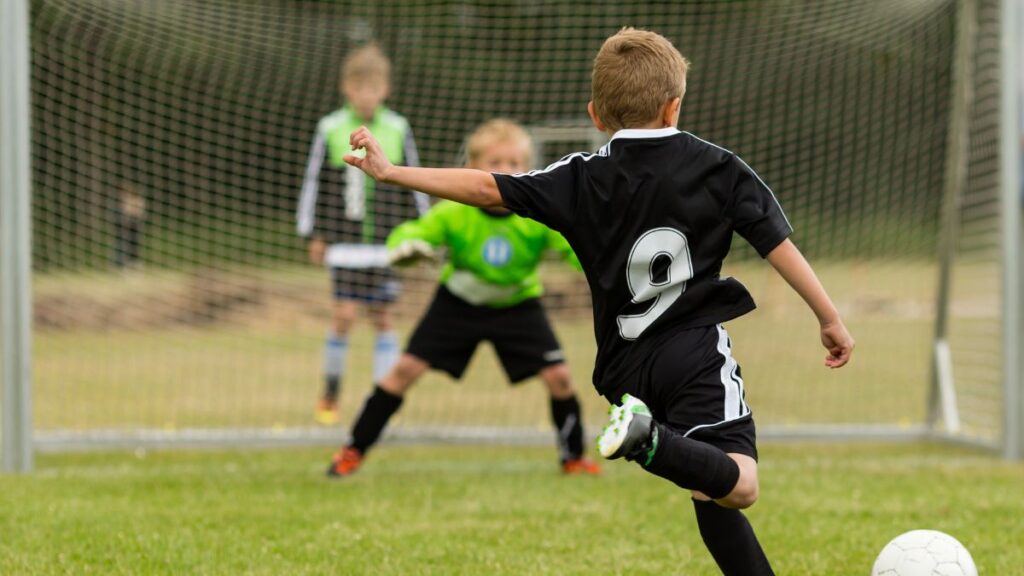15 Strict Parenting Rules That Sound Funny but Actually Work for Kids
Some parenting rules might sound over-the-top or even a little silly to others, but many of them are surprisingly effective. What may seem strict or unnecessary at first glance often turns out to be the reason why a child behaves well, feels safe, or thrives at home and in school. While these rules might make some people laugh or raise their eyebrows, parents know they work because they create structure, build responsibility, and teach essential life lessons.
Kids do better when they know what’s expected and have clear boundaries. Here are 15 strict rules that people often joke about—but that truly work for raising happy, respectful, and confident kids.
No Screens During Meals

Some families don’t allow phones, tablets, or TVs at the dinner table, and others think it’s too strict. But this rule helps kids focus on eating and encourages honest conversations with family.
It teaches them to be present and respectful during shared meals. Mealtime becomes a chance to connect and share about the day. Over time, this habit builds stronger family bonds.
Bedtime Is Non-Negotiable

Strict bedtimes might seem old-fashioned, but kids need structure to sleep well. When bedtime is the same every night, children get the rest their brains and bodies need.
It also makes mornings easier because they wake up feeling refreshed. This routine helps with behavior, mood, and learning. A well-rested kid is usually a happier and more focused one.
Say Please and Thank You Every Time

Some parents insist on polite words no matter what, even when others roll their eyes. Teaching kids always to say “please” and “thank you” builds good manners and respect.
It helps them develop kindness and gratitude, even at a young age. These small habits often lead to big respect from others as they grow. People remember polite kids, and it starts with this simple rule.
You Can’t Leave the Table Without Asking

Asking permission to leave the table might seem strict to guests, but it teaches kids respect and patience. It shows them that meals are shared experiences and not something to rush through.
This rule also encourages kids to stay put, finish their food, and engage with the family. It’s a small way to build self-control. Over time, it becomes second nature.
Chores Are Part of Daily Life

Requiring chores every day might seem harsh, especially when kids are young. But chores help kids learn responsibility and teamwork. They begin to understand that everyone has to pitch in to keep a home running—even small tasks, like setting the table or putting away laundry, teach valuable life skills. Kids grow up more capable when chores are just a regular part of the routine.
No Talking Back

Some parents are firm about not allowing backtalk, and people might joke that it sounds strict. But this rule teaches respect and helps kids manage their emotions better.
It encourages calm conversations rather than outbursts. Kids learn that there’s a respectful way to express themselves. This boundary keeps communication healthy and respectful in the long run.
Clothes Must Be Picked Out the Night Before

Having kids choose their clothes the night before school might seem unnecessary to some, but it saves a lot of stress in the morning. This rule teaches planning and reduces last-minute arguments.
It gives kids more responsibility for their choices. They also learn how to make decisions and stick to them. Mornings are smoother, and everyone starts the day with less chaos.
One Sport or Activity at a Time

Limiting kids to one activity at a time can seem overly strict when other families are juggling multiple sports, music lessons, and clubs. But this rule helps kids avoid burnout and keeps schedules manageable.
It gives them time to enjoy what they’re doing without feeling rushed, truly. It also leaves room for family time and rest. Sometimes, less really is more.
Apologies Must Be Sincere and Specific

Some parents won’t accept a quick “sorry” and make their kids explain what they’re sorry for. While it may seem too intense, this teaches kids empathy and accountability.
They learn to think about how their actions affect others. A sincere apology means more than just saying the word—it’s about understanding and growth. This habit builds stronger relationships.
Homework Comes Before Play

Enforcing a rule where fun only happens after homework is done can sound like no fun at all. But it teaches kids how to prioritize and manage their time. They learn that responsibilities come first, and rewards follow effort. This routine builds good habits that last into adulthood. And once the work is done, playtime feels even better.
You Must Greet Adults Politely

Some families make it a rule that children greet every adult politely when entering a room or meeting someone. It might sound overly formal, but it helps kids learn social skills and confidence. A polite greeting shows respect and makes a great first impression. This rule also encourages eye contact and friendly behavior. These small acts can open doors later in life.
No Interrupting When Others Are Talking

Teaching kids to wait their turn to speak is sometimes seen as too strict, especially with younger children. But it helps them learn patience and self-control.
They begin to understand that conversations are a two-way street. This rule also shows respect for others and makes them better listeners. It’s a skill that’s valuable in school, friendships, and future work settings.
You Can’t Always Win

Some parents are firm about not letting their kids win every game or avoid failure. While it might seem harsh, it teaches important lessons about effort, sportsmanship, and resilience.
Kids learn how to handle disappointment and try again. They also know that real success comes from practice, not shortcuts. Facing small failures early builds strength for bigger challenges later.
Screens Off an Hour Before Bed

A rule that cuts off screens before bedtime might make kids complain, but it improves sleep and mood. The blue light from screens affects how well kids sleep, and watching shows or playing games too close to bed can make it harder to wind down.
This rule encourages reading, quiet play, or talking before sleep. It sets the tone for a calm night. And a good night’s sleep makes everything easier.
You Clean Up What You Mess Up

Some parents insist that kids clean up after themselves every time, even if it takes longer. It teaches responsibility and respect for shared spaces. Kids learn that their actions have consequences and that helping out matters. This rule also builds independence. The more they practice, the more capable they become.
Related: 15 Clever Hacks To Reduce That Never-Ending Grocery Bill

Managing grocery expenses can be challenging for many households, especially with rising food costs and fluctuating budgets.
However, with some creativity and resourcefulness, you can implement numerous clever hacks to reduce your never-ending grocery bill without sacrificing the quality or variety of your meals.







